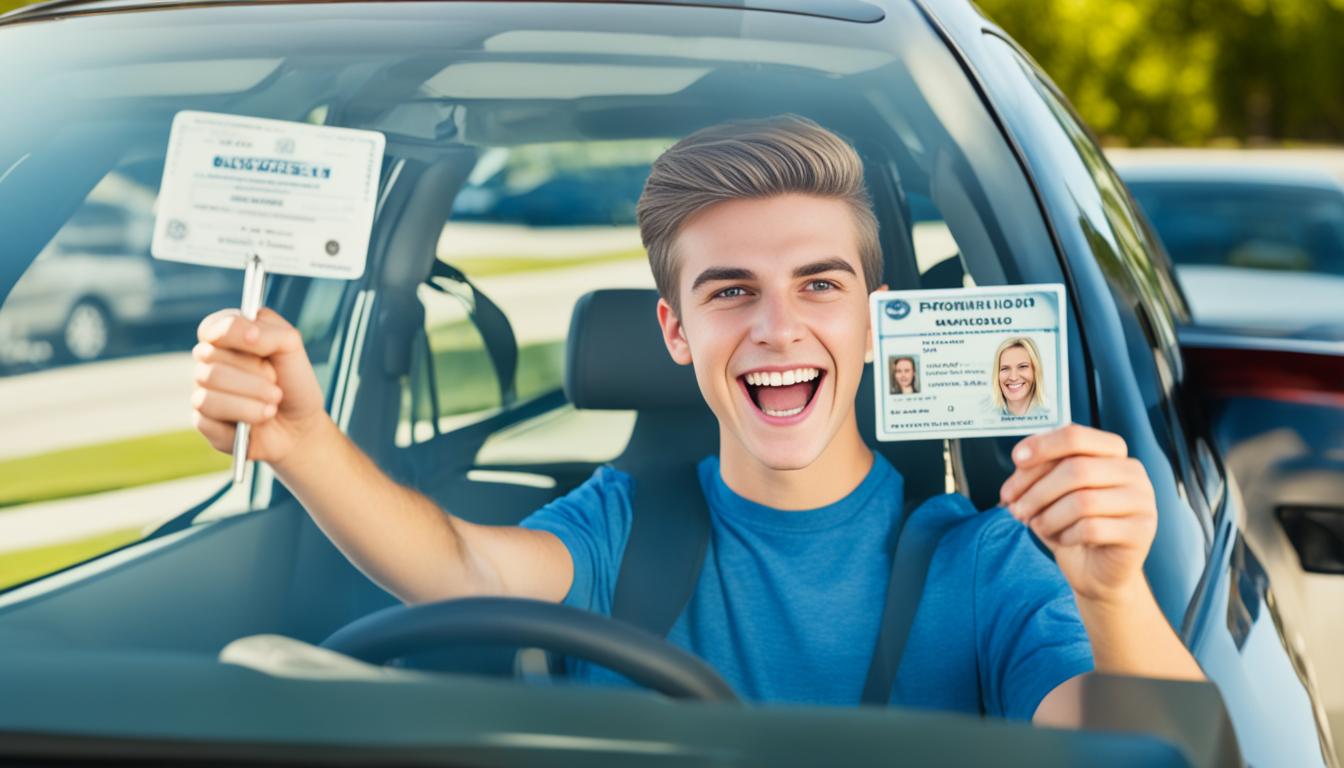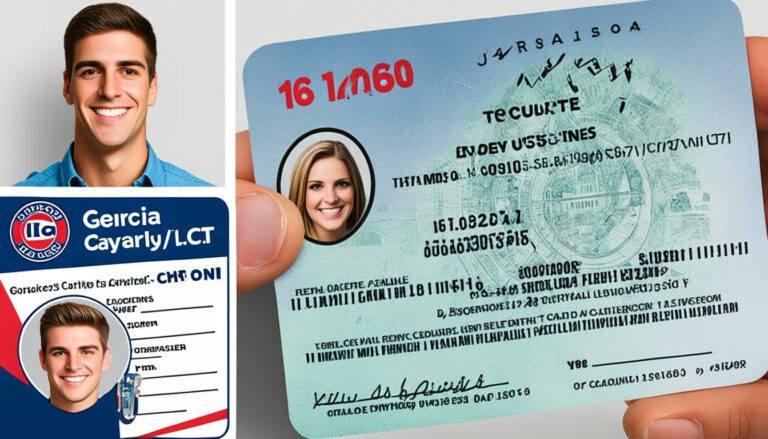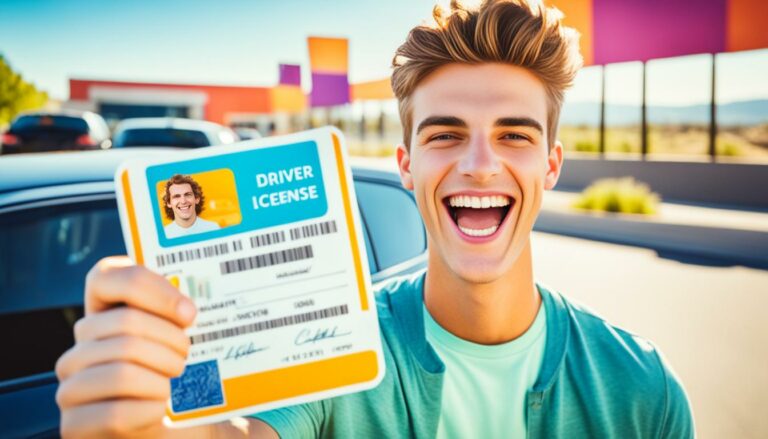Getting Your License at 15: Is It Possible?
Are you wondering if you can get your driving license at 15? The answer might depend on where you live. In some states, it is possible to obtain a learner’s permit or even a full license at the age of 15. Let’s take a closer look at the driving age requirements and regulations that apply to aspiring young drivers.
Key Takeaways:
- Driving age requirements vary by state, so it is important to check the specific regulations in your area.
- In Maryland, individuals can get a learner’s permit at 15 years and 9 months, a provisional license at 16 years and 6 months, and a full license at 18 years old.
- Graduated license programs and driver’s education courses are designed to help new drivers gradually develop their skills and knowledge.
- Parents play a crucial role in teaching safe driving practices to their teen drivers.
- Obtaining a driver’s license at 15 is possible in some states, but it is important to demonstrate maturity and responsibility on the road.
Learner’s Permit and Provisional License
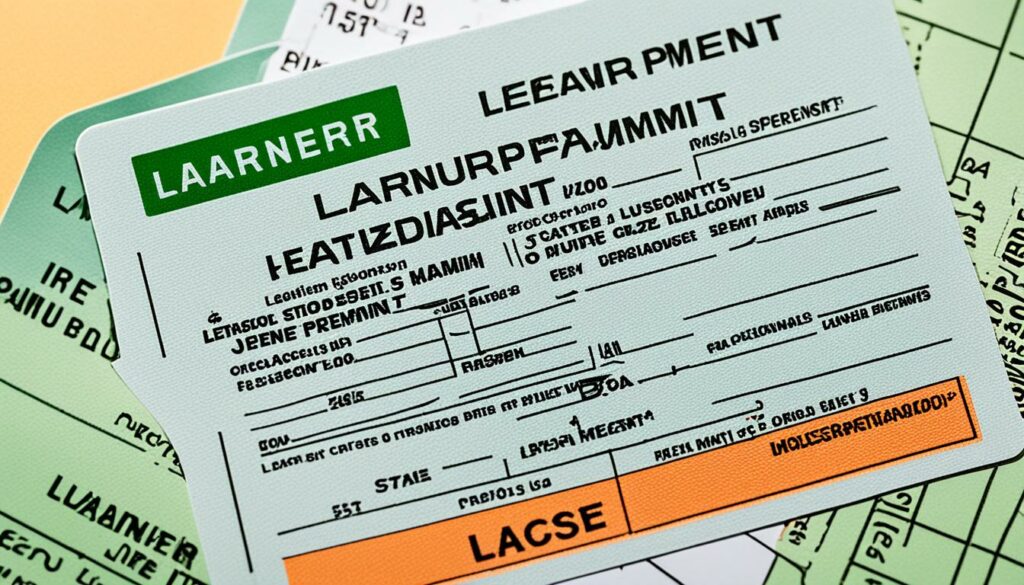
Obtaining a learner’s permit or provisional license is an important step for teenagers looking to get behind the wheel. In Maryland, individuals under 18 years old have the opportunity to obtain these permits with parental or guardian permission. Let’s take a closer look at the learner’s permit and provisional license requirements and what they entail.
Learner’s Permit
A learner’s permit is the first stage in the Maryland graduated driver licensing program for new drivers under 18. It allows teenagers to practice driving under certain restrictions before obtaining a full license. To be eligible for a learner’s permit, individuals must meet the following requirements:
- Be at least 15 years and 9 months old
- Complete a driver’s education course
- Pass a vision screening, knowledge test, and road skills test
- Have parental or guardian consent
Once issued, the learner’s permit allows teenagers to practice driving with a licensed adult who is at least 21 years old and has held a driver’s license for at least three years. During this stage, it’s essential to gain as much experience as possible and familiarize oneself with road rules and safe driving practices.
Provisional License
A provisional license is the second stage of the Maryland graduated driver licensing program. It grants teenagers additional driving privileges but still comes with specific restrictions. To obtain a provisional license, individuals must meet the following criteria:
- Be at least 16 years and 6 months old
- Have held a learner’s permit for a minimum of 9 months
- Complete a minimum of 60 hours of supervised driving, including 10 hours at night
- Successfully pass a driving skills test
With a provisional license, teenagers have more freedom to drive but must still adhere to certain restrictions. For the first 5 months of holding a provisional license, they are prohibited from driving between midnight and 5 a.m., except for certain exceptions like traveling to or from work or school-related activities.
It’s important to note that driving restrictions for teens may vary by state. While this section focuses on Maryland’s requirements, other states may have similar programs in place to ensure the safe transition from learner’s permits to full licenses.
Restrictions for Drivers Who Are Minors
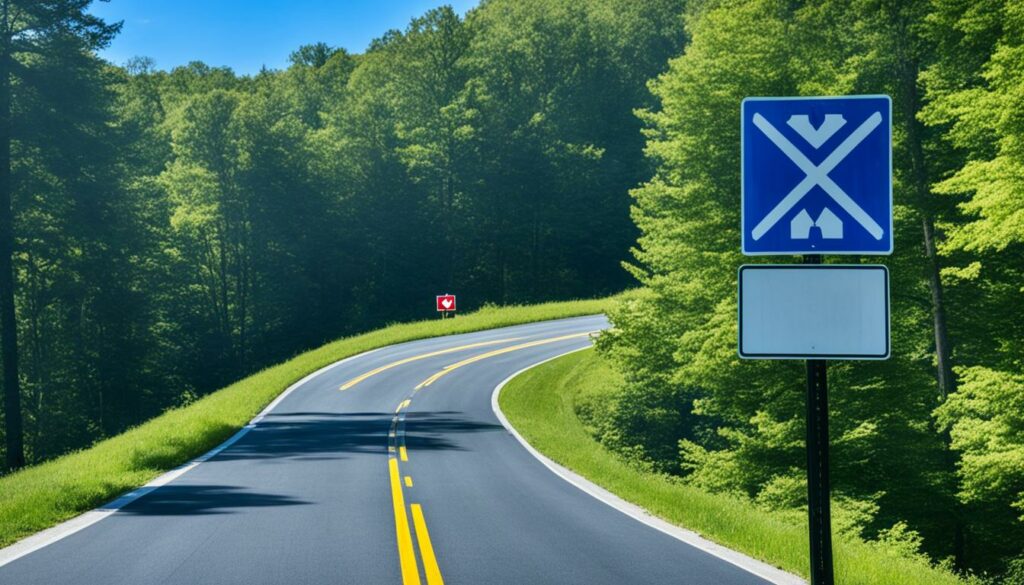
The Maryland Motor Vehicle Administration (MVA) has implemented specific restrictions for drivers who are minors. These restrictions aim to ensure the safety of young drivers and other road users. Understanding and adhering to these restrictions is crucial for minors who are learning to drive and hold a license in Maryland.
Restrictions on Learner’s Permits
One of the driving restrictions for minors in Maryland relates to learner’s permits. Applicants under the age of 16 may face additional requirements before obtaining a learner’s permit. For example, if an applicant has more than 10 unexcused absences from school, they may not be eligible to receive a learner’s permit. This requirement emphasizes the importance of maintaining regular school attendance as a condition for driving privileges.
License Suspension for Minors
The Maryland MVA has the authority to suspend a minor’s driver’s license under certain circumstances. If a minor driver is charged with specific offenses, their license may be suspended by the MVA. Examples of offenses that can lead to a license suspension for a minor include failing to remain at the scene of an accident and driving a recreational vehicle on a highway.
In Maryland, the MVA takes the safety of minor drivers seriously and enforces driving restrictions and license suspensions to ensure responsible and accountable behavior on the road.
It is crucial for minors to understand and abide by these restrictions to maintain their driving privileges and promote safe driving habits.
| Driving Restriction | Violation | Consequence |
|---|---|---|
| Excessive Unexcused Absences from School | More than 10 unexcused absences | Learner’s permit may not be issued |
| Failure to Remain at the Scene of an Accident | Charged with leaving the scene of an accident | License suspension by the MVA |
| Driving a Recreational Vehicle on a Highway | Charged with operating a recreational vehicle on a highway | License suspension by the MVA |
Drunk or Drugged Driving
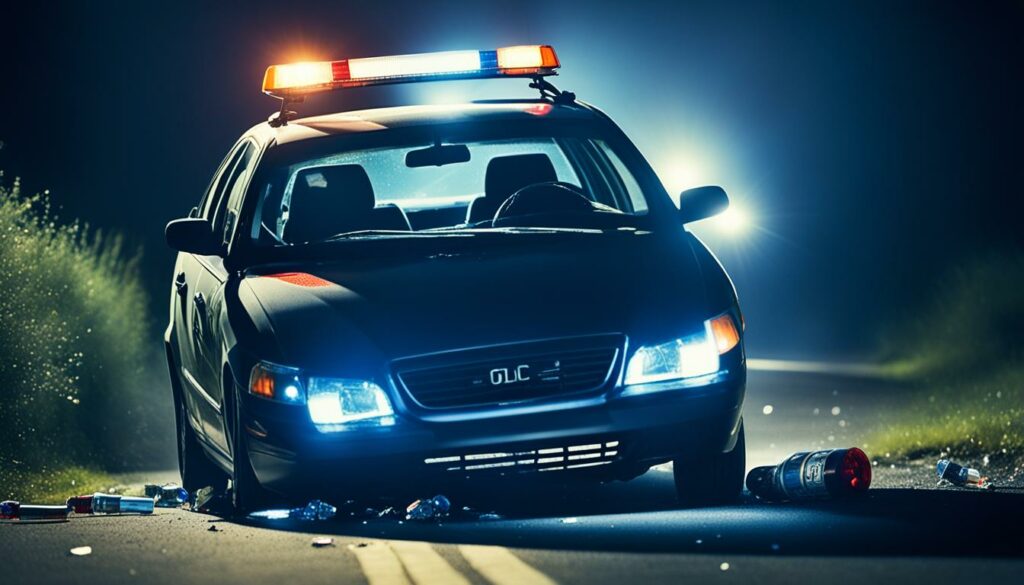
Underage drunk driving is a serious offense that carries significant consequences. In Maryland, DUI laws for minors are strictly enforced to ensure the safety of young drivers and others on the road. If a minor driver is convicted of drunk or drugged driving, they may face severe penalties, including the suspension of their driver’s license for up to two years.
The Maryland DUI penalties for minors aim to deter underage drinking and impaired driving. These strict laws serve as a reminder that operating a vehicle under the influence of alcohol or drugs is not only illegal but also extremely dangerous. It is crucial for young drivers to understand the potential risks and consequences associated with underage drunk driving.
As a part of Maryland’s efforts to combat underage drunk driving, drivers under the age of 21 are subject to an alcohol restriction. This restriction prohibits them from driving with a blood alcohol concentration (BAC) of 0.02 or more, which is significantly lower than the 0.08 BAC limit for drivers over 21. This zero-tolerance policy emphasizes the state’s commitment to preventing underage drinking and promoting responsible driving habits among young individuals.
It is essential for parents, educators, and the community to educate minors about the dangers of drunk or drugged driving and the legal consequences they may face for violating DUI laws. By promoting awareness and providing support, we can work together to prevent underage drunk driving and ensure the safety of our roads for everyone.
| Offense | Possible Penalties |
|---|---|
| First Conviction | License suspension up to 2 years, mandatory participation in an alcohol education program, fines |
| Second Conviction | License suspension up to 3 years, mandatory participation in an alcohol education program, fines, possible jail time |
| Subsequent Convictions | License suspension up to 4 years, mandatory participation in an alcohol education program, fines, possible jail time |
| Refusing Chemical Test | License suspension up to 120 days, mandatory participation in an alcohol education program, fines |
Using a Wireless Device
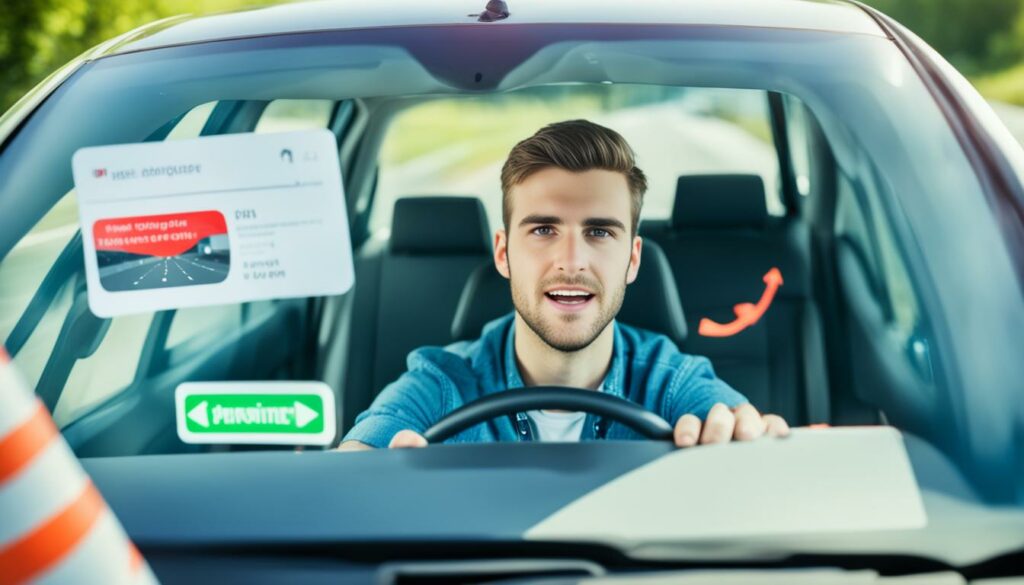
When it comes to using a wireless device while driving, Maryland has specific laws in place to ensure the safety of all road users. These laws apply not only to young drivers but also to minors who are behind the wheel.
It’s important to note that young drivers, including minors, are prohibited from using any wireless communication device while driving, regardless of whether it’s a cellphone, smartphone, or even a hands-free device. The goal is to minimize distractions and keep young drivers focused on the road.
“Using a cellphone or any wireless device while driving is not only against the law, but it can also have serious consequences,” says Officer Smith from the Maryland State Police. “We have seen far too many accidents and tragedies caused by distracted driving.”
Distracted Driving Laws for Minors
Under Maryland law, violating the cellphone restrictions for young drivers can result in serious consequences, including license suspension. It’s essential for young drivers and their parents to understand these laws to avoid any legal issues and prioritize road safety.
Here is a table summarizing the key points of Maryland’s distracted driving laws for minors:
| Violation | Consequence |
|---|---|
| Using a cellphone while driving | License suspension |
| Using a wireless device (including hands-free) while driving | License suspension |
As you can see, Maryland takes distracted driving seriously and has strict penalties in place to deter young drivers from using wireless devices behind the wheel.
Keep in mind that these laws are designed to protect everyone on the road, including young drivers themselves. It’s crucial to resist the temptation to use a cellphone or any other wireless device while driving and focus on the task at hand – driving safely.
Remember, your safety and the safety of others should always be the top priority when you’re behind the wheel.
Frequently Asked Questions

When it comes to driving restrictions for minors, there are several common questions that arise. Here are some answers to address your concerns:
Driving with Passengers Under 18
During the first 5 months of having a provisional license in Maryland, minors are restricted from driving with passengers under 18, with some exceptions. These exceptions include family members and adults who are at least 21 years old. It’s crucial for young drivers to understand and respect these passenger restrictions to ensure their safety on the road.
Driving with a Sibling
If your sibling is under 18 and you have a provisional license, you may be wondering if you can drive with them. The answer depends on the specific state regulations. In Maryland, for example, you may drive with your sibling who is under 18 as long as you have the appropriate license and follow the passenger restrictions mentioned earlier.
Restrictions for Young Drivers
Young drivers, especially those who are just starting out, often have questions about the specific restrictions they need to adhere to. These restrictions vary by state, but commonly include limitations on nighttime driving, passenger numbers, and cellphone usage. It’s important for young drivers to be familiar with these restrictions and follow them to avoid penalties and ensure their safety.
Babysitter Driving Restrictions
As a babysitter or nanny, you may wonder if there are any specific driving restrictions when traveling with minors in your care. It’s crucial to be aware of the regulations in your state. In Maryland, minors unrelated to the driver fall under the passenger restrictions mentioned earlier. This means that if you have a provisional license, you may not be able to drive with minors unrelated to you, unless they are siblings or you have explicit permission from their parents or legal guardians.
Remember to always check the specific driving restrictions and regulations in your state as they can vary. Understanding and adhering to these restrictions not only helps you stay within the legal boundaries but also ensures the safety of everyone on the road.
Graduated License Programs
Graduated license programs have been implemented in many states to help teens gain driving responsibilities gradually and reduce car crashes among young drivers. These programs have proven to be effective in improving teen driver safety and reducing the risks associated with inexperienced driving.
One of the key benefits of graduated license programs is the introduction of restricted driving privileges for young drivers. These restrictions often include limitations on the number of passengers allowed in the car, restrictions on nighttime driving, and prohibitions on the use of electronic devices while driving. By implementing these restrictions, graduated license programs aim to reduce distractions and promote focused driving, ultimately reducing the likelihood of car crashes.
Research has shown that graduated license programs are successful in their goal of reducing car crashes among 16 and 17-year-olds. According to a study conducted by the Insurance Institute for Highway Safety, states with comprehensive graduated license programs experienced a 30% reduction in fatal car crashes involving 16-year-old drivers.
Furthermore, graduated license programs provide teens with valuable learning opportunities and increased driver training. These programs often require teens to complete a certain number of supervised driving hours and driver education courses before advancing to the next stage of the licensing process. By providing structured training and experience, graduated license programs help teens develop the necessary skills and knowledge to become safe and responsible drivers.
“Graduated license programs have revolutionized the way we approach teen driver safety. By gradually introducing driving privileges and imposing restrictions, we are giving young drivers the opportunity to gain experience in a controlled environment, reducing the risks associated with inexperience.” – Dr. Jane Roberts, Traffic Safety Expert
The implementation of graduated license programs has also led to increased parental involvement in their teen’s driving education. Parents play a crucial role in ensuring that their teen drivers adhere to the program’s restrictions and guidelines. This involvement allows parents to actively participate in their teen’s driving experience and provides an additional layer of supervision and guidance.
The success of graduated license programs highlights the importance of comprehensive driver training and the need for a gradual transition into full driving privileges for young drivers. By equipping teens with the necessary skills, knowledge, and experience, graduated license programs contribute to safer roads and reduce the number of car crashes involving teen drivers.
| Benefits of Graduated License Programs | Reducing Car Crashes Among Teen Drivers |
|---|---|
| 1. Gradual introduction of driving privileges | 1. 30% reduction in fatal car crashes involving 16-year-old drivers |
| 2. Restrictions on passengers and nighttime driving | 2. Increased parental involvement in teen’s driving education |
| 3. Structured driver training and experience | 3. Safely develops necessary driving skills and knowledge |
The Success of Graduated License Programs
The effectiveness of graduated license programs in reducing car crashes among teen drivers is supported by extensive research and real-world data. A study conducted by the National Highway Traffic Safety Administration (NHTSA) found that states with strong graduated license programs experienced a significant reduction in fatal car crashes involving 16-year-old drivers.
Furthermore, a comprehensive analysis conducted by the Centers for Disease Control and Prevention (CDC) concluded that graduated license programs are effective in reducing the overall crash risk among young drivers.
By implementing graduated license programs and providing young drivers with incremental driving privileges, states have successfully reduced the risks associated with inexperienced driving. These programs have proven to be a valuable tool in promoting safe and responsible driving behaviors among teens, ultimately saving lives and making our roads safer for everyone.
Importance of Driver’s Education
Driver’s education courses play a crucial role in shaping responsible and skilled teen drivers. These courses are designed to provide comprehensive instruction on safe driving practices, helping young drivers develop the knowledge and skills necessary to navigate the roads confidently. In many states, completion of a driver’s education course is a requirement for obtaining a full driver’s license.
Driver’s education courses cover a wide range of important topics that are essential for safe driving. Students learn about road signs, traffic rules and regulations, defensive driving techniques, and strategies for handling different weather conditions. They also receive instruction on vehicle maintenance, such as checking tire pressure, fluid levels, and performing routine checks to ensure the safety and proper functioning of their vehicles.
One significant benefit of driver’s education is that it teaches young drivers how to react in emergency situations. Instructors provide practical training on how to handle unexpected situations such as sudden braking, skidding, or evasive maneuvers to avoid collisions. This knowledge prepares young drivers to make quick, informed decisions that can potentially save lives.
“Driver’s education courses teach students not just the fundamentals of operating a vehicle, but also the essential skills and knowledge needed to be respectful, responsible, and safe drivers.”
Parents also have an important role to play in their teen’s driving education. While classroom instruction is crucial, it is equally important to supplement it with real-world experience. By allowing their teens to practice driving under their supervision, parents can provide valuable guidance, reinforce safe driving habits, and teach important lessons that may not be covered in the classroom setting.
Additionally, parents should establish their own set of rules and restrictions for their teen drivers. This can include limitations on nighttime driving, passenger restrictions, and enforcing zero-tolerance policies for distracted driving. By enforcing these rules consistently, parents can help instill responsible and safe driving behaviors in their teens.
Benefits of Driver’s Education:
- Comprehensive instruction on safe driving practices
- Learning about road signs, traffic rules, and defensive driving techniques
- Developing skills to handle emergency situations
- Practical training on vehicle maintenance
- Supplementing classroom learning with hands-on experience
- Parental involvement in reinforcing safe driving habits
By completing a driver’s education course and receiving guidance from parents, young drivers can develop the skills and knowledge necessary to become responsible, capable, and safe drivers on the road.
Conclusion
Ensuring driving safety for teens is of paramount importance, and it begins with responsible teen driving. While some states allow teens to obtain a driver’s license at 15, it is crucial for them to demonstrate maturity and responsibility before getting behind the wheel.
Parents play a vital role in teaching their teens safe driving practices and instilling the necessary rules and restrictions. By setting clear expectations, enforcing consequences for reckless behavior, and being an active role model, parents can help shape responsible teen drivers.
Furthermore, graduated license programs and driver’s education courses significantly contribute to creating responsible teen drivers. Graduated license programs provide a structured approach, gradually increasing driving responsibilities and reducing the risks associated with inexperienced drivers. Driver’s education courses equip teens with essential knowledge and skills needed to navigate the road safely.
Before pursuing a driver’s license at 15, it is essential to check the specific driving age requirements and regulations in your state. Each state may have different laws and restrictions in place, emphasizing the importance of staying informed.
FAQ
Can I get my driver’s license at 15?
The driving age requirements vary by state, so it’s important to check the specific regulations in your state. In Maryland, for example, individuals can obtain a learner’s permit at 15 years and 9 months, but a full license can only be obtained at 18 years old.
What is a learner’s permit and a provisional license?
A learner’s permit is a restricted license that allows individuals to practice driving under certain conditions. A provisional license is the next step after a learner’s permit and allows individuals to drive unsupervised but with certain restrictions in place.
Are there any driving restrictions for minors?
Yes, there are driving restrictions for minors. For example, in Maryland, minors are prohibited from driving with passengers under 18 for the first 5 months of having a provisional license, with some exceptions for family members and adults.
What happens if a minor driver commits certain offenses?
If a minor driver in Maryland is charged with certain offenses, such as failing to remain at the scene of an accident or driving a recreational vehicle on a highway, their license may be suspended by the Maryland Motor Vehicle Administration.
What are the laws regarding drunk or drugged driving for minors?
Maryland has strict laws regarding drunk or drugged driving for minors. A minor driver convicted under these laws may have their license suspended for up to two years. There is also an alcohol restriction for drivers under 21, prohibiting them from driving with a blood alcohol concentration of 0.02 or more.
Can young drivers use wireless devices while driving?
No, young drivers including minors in Maryland are prohibited from using any wireless communication device while driving, including hands-free devices. Violating this law can result in consequences such as license suspension.
How do graduated license programs work?
Graduated license programs are implemented in many states to help teens gain driving responsibilities gradually and reduce car crashes among young drivers. These programs often include restrictions such as a limit on the number of passengers or a curfew.
How important is driver’s education?
Driver’s education courses play a crucial role in teaching teens about safe driving practices. Many states require teens to complete a driver’s education course before obtaining a full license. These courses cover topics such as road signs, vehicle maintenance, and emergency situations.
What is the role of parents in teaching safe driving?
Parents play a vital role in teaching their teens safe driving practices and enforcing rules and restrictions. It is important for parents to supplement classroom learning with practical experience and set their own rules and restrictions for their teen drivers.

